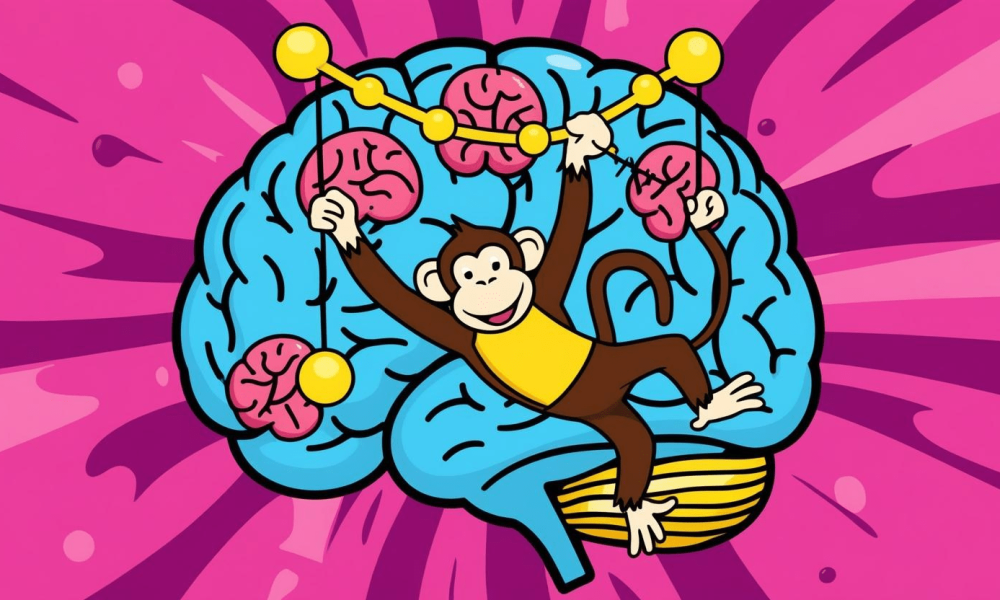Struggling with procrastination? In this blog, we’ll explore proven solutions to help you stop procrastinating, overcome those productivity barriers, and show you how to get things done faster, so you can reclaim your time and achieve your goals. By applying the right procrastination solutions, you can break free from delays and start making meaningful progress on your tasks today. Beating procrastination isn’t just about motivation—it’s about using the right techniques to take action and build lasting habits that keep you on track.
Table Of Content
- The Struggle of Procrastination
- Proven Methods for Beating Procrastination and Staying Focused
- How Meditation Helps Overcome Procrastination
- Maintaining Focus in a Distracted World
- Ready to Stop Procrastinating? Procrastination Is a Habit—But It’s a Habit You Can Break
- FAQs about Overcoming Procrastination
The Struggle of Procrastination
Procrastination is something we all struggle with at some point—whether it’s putting off a work project, delaying a difficult conversation, or even avoiding small tasks that pile up and cause stress. I’ve certainly found myself in this cycle, where the longer I put something off, the more anxiety and pressure it creates. Often, procrastination is tied to the “monkey mind”—that restless, distracted, and impulsive part of our brain that pulls us away from tasks, leaving us unable to focus or commit. Understanding how to stop procrastinating starts with recognizing these patterns and implementing small, intentional changes that make taking action easier.
Overcoming procrastination requires more than just willpower; it involves a combination of techniques to calm the mind and increase focus. In high performers, it can sometimes signal that the task at hand isn’t aligned with their purpose or values. For instance, you might find yourself avoiding a specific task—like cleaning your room—because it feels less meaningful. But taking the time to tidy up, even if it seems trivial, can actually clear your mind and help you focus better on the work that matters most. Reframing tasks like this by connecting them to a greater purpose can make them feel less daunting and more manageable.
Meditation is an effective tool for beating procrastination, as it helps train the brain to focus, manage distractions, and reframe your mindset. By incorporating meditation into your daily routine, you can quiet the “monkey mind” and tackle tasks with greater ease and productivity.

Proven Methods for Beating Procrastination and Staying Focused
Beating procrastination can feel like an ongoing battle, but there are proven strategies that can help you take control of your time and get things done faster. In his TED Talk Inside the Mind of a Master Procrastinator, Tim Urban explains how procrastination often arises from the conflict between our emotional and rational brains. He introduces the concept of the “Instant Gratification Monkey,” a part of our brain that craves immediate pleasure and avoids discomfort, distracting us from important tasks. To beat procrastination, it’s crucial to manage this internal conflict and use strategies that foster focus and productivity.
Here are eight proven methods for overcoming procrastination and maintaining focus:
Breaking Tasks into Smaller Steps
Large, overwhelming tasks are a primary cause of procrastination. By breaking them into smaller, more manageable steps, you reduce feelings of anxiety and increase motivation. Each mini-task completed provides a sense of accomplishment, driving you forward with momentum. This simple yet effective approach is one of the best procrastination solutions, helping you stay engaged and making even the most daunting tasks feel achievable.
Setting Deadlines
Self-imposed deadlines, even if they’re earlier than necessary, help create urgency. Setting these deadlines ahead of time ensures that tasks are completed with ample time for revisions, minimizing the last-minute rush and improving the overall quality of your work. When it comes to beating procrastination, structured deadlines act as a powerful motivator, keeping you accountable and preventing tasks from piling up.
Time Blocking
Time blocking involves dedicating specific periods of the day to focused work. By scheduling uninterrupted work sessions and turning off distractions (like putting your phone on “Do Not Disturb”), you can ensure that you have the mental space needed to dive deeply into tasks.

Meditation
Meditation is a powerful tool for calming the mind and improving focus. Regular mindfulness practice trains your brain to stay attentive, reducing impulsivity and the urge to procrastinate. Research shows that consistent meditation for productivity enhances concentration, self-regulation, and mental clarity, all of which support productivity.
The Pomodoro Technique
The Pomodoro Technique involves working in 25-minute intervals, followed by a short 5-minute break. After four “Pomodoros,” take a longer break. This method helps maintain focus by preventing mental burnout, providing structure, and encouraging sustained productivity through regular rest periods. For those committed to beating procrastination, this technique creates a sense of urgency and helps train the brain to work in focused bursts, making tasks feel more manageable.
The Two-Minute Rule
If a task takes less than two minutes to complete, do it immediately. This simple rule prevents small tasks from piling up and overwhelming you later. It helps clear out minor tasks quickly, giving you a sense of accomplishment and freeing up mental space for more significant work. Implementing this habit is one of the simplest procrastination solutions, as it eliminates hesitation and builds momentum for tackling larger tasks.

Daily Rituals
Building consistent, small habits can make a big difference in your productivity. Start your day with a to-do list, prioritize the most challenging tasks, and use strategies like setting SMART goals to stay on track. Creating daily rituals helps you develop a routine that primes your brain for focus and action. If you’re looking for practical ways on how to stop procrastinating, establishing structured habits ensures that taking action becomes second nature rather than a struggle.
The 80/20 Rule (Pareto Principle)
Focus on the 20% of tasks that yield 80% of the results. By identifying the most important tasks that provide the greatest value, you can allocate your energy efficiently and avoid wasting time on less impactful activities. This approach is a key procrastination solution, helping you concentrate on high-impact tasks instead of getting stuck in busy work that doesn’t drive real progress.
How Meditation Helps Overcome Procrastination
Scientific research indicates that mindfulness meditation can effectively reduce procrastination by enhancing self-regulation and emotional well-being. A study published in Psychology Today highlights that individuals with higher mindfulness levels tend to procrastinate less, suggesting that mindfulness practices can improve one’s ability to manage tasks promptly.
Moreover, a meta-analysis in the Journal of General Psychology found a significant negative correlation between trait mindfulness and procrastination, reinforcing the potential of mindfulness-based interventions to decrease procrastination tendencies. These findings suggest that incorporating mindfulness meditation into daily routines can serve as an effective strategy for those seeking to overcome procrastination and enhance productivity.
You can also read “7 Successful CEOs Who Use Meditation to Boost Their Productivity“
Maintaining Focus in a Distracted World
In addition to these strategies, it’s important to recognize that maintaining focus is a common challenge in today’s fast-paced, technology-driven world. Attention spans have significantly decreased over the years, with research showing that the average human attention span dropped from 12 seconds in 2000 to just 8 seconds in 2013—shorter than a goldfish’s attention span of 9 seconds! This makes it harder than ever to stay focused and overcome distractions. However, by applying the techniques above, you can regain control over your time and build lasting habits that help you stay focused and beat procrastination.
By incorporating these methods into your routine, you can boost your productivity, reduce procrastination, and start getting things done faster and more efficiently.

How to Get Things Done Faster
To get things done faster and overcome procrastination, it’s essential to focus not only on external strategies but also on internal mindset shifts. One key mindset shift involves recognizing how fear of failure and perfectionism can fuel procrastination. By reframing these thoughts, you can address them directly and prevent them from becoming obstacles to progress. Understanding that perfection is not the goal—progress is—can significantly reduce the pressure that often leads to procrastination.
Psychological strategies also play an important role in boosting productivity. Visualization is a powerful tool in motivating action; by imagining the positive outcome of completing a task, you can tap into the emotions associated with success, making it easier to begin and follow through. Similarly, a reward system can help maintain motivation. By setting up small rewards after completing tasks, you can build momentum and reinforce the habit of finishing what you start. If you’re focused on beating procrastination, combining visualization with a structured reward system can make even the most daunting tasks feel achievable and rewarding.

Ready to Stop Procrastinating? Procrastination Is a Habit—But It’s a Habit You Can Break
Overcoming procrastination is possible with the right tools and mindset. Consider trying one of the techniques mentioned, such as a short meditation session to reset your focus before tackling a big project. Meditation can calm your mind and prepare you for sustained focus, and apps like Siddha Meditate can help guide your practice to ensure consistency. Download the app today and start your journey to improved focus and productivity. If you’re wondering how to stop procrastinating, incorporating focus and concentration meditation into your routine can train your mind to stay present, reduce distractions, and improve productivity over time. Download the app today and start your journey to improved focus and productivity.
FAQs about Overcoming Procrastination
1. What are effective strategies to stop procrastinating?
Breaking tasks into smaller steps, setting self-imposed deadlines, and using procrastination solutions like time blocking can help. Beating procrastination also requires mindfulness—practicing meditation improves focus and reduces distractions, making it easier to take action.
2. How does the Pomodoro Technique help in beating procrastination?
The Pomodoro Technique structures work into focused 25-minute intervals, followed by short breaks. This prevents burnout, keeps the brain engaged, and builds momentum, making it a great procrastination solution to stay on track.
3. Can meditation improve focus and reduce procrastination?
Yes! Focus and concentration meditation trains the brain to stay present, reducing impulsivity and distractions. By calming the mind, meditation makes it easier to stop procrastinating and complete tasks with clarity.
4. How can setting SMART goals help in overcoming procrastination?
SMART goals provide clear direction and structure, making tasks feel manageable. By defining realistic timelines, they help maintain motivation and prevent delays, supporting how to stop procrastinating effectively.







